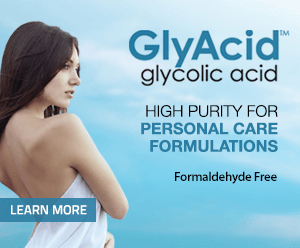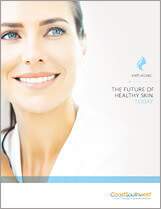The global anti-pollution skincare market is predicted to expand at a CAGR of 5% from 2019 to 2025, according to new data.
“The demand for skincare products with an anti-pollution claim will soar in the coming year and will become as commonplace in our daily routines as sun protection creams,” consultant dermatologist Dr Justine Kluk told Harper’s Bazaar.
Growing consumer awareness of the skin damage caused by air pollution, rising cases of both common and chronic skincare conditions linked to pollution, and a desire for easy-to-use products are the three key drivers that will help push the anti-pollution skincare market to new heights over the next four years.
Educated consumers want anti-pollution
To start, the increasing consumer awareness and alarm about the damage air pollution can cause to the skin is the top contributor to the projected growth of the anti-pollution skincare market.
Air pollution contains polycyclic aromatic hydrocarbons (PAHs), microscope contaminants that help to produce free radicals. PAHs hurt the skin barrier by stripping away the protective lipids that work to maintain the skin’s moisture levels, firmness, and health.
“A compromised skin barrier can lead to increased skin sensitivity, discomfort and premature signs of skin aging, especially pigmentation issues,” Sally Penford, Dermalogica’s director of education, told GQ. “Exposure to air and particle pollution significantly correlates to an increase in signs of skin aging.”
As skintellectuals learn more about pollution, skincare, and protecting the skin barrier, the market for effective anti-pollution formulations will only grow.
Rising complaints about skincare issues
Additionally, another driver behind the anti-pollution skincare market is the growing evidence that connects the rise in common and chronic skincare conditions to the rise in pollution levels.
Today, scientific research links pollution to a wide variety of skincare issues, including:
- acne
- dehydration
- hyperpigmentation
- discoloration, spotting, and paleness
- increased visibility of fine lines and wrinkles
- sagging skin
- chronic skincare conditions like eczema, psoriasis, and extreme sensitivity
As air pollution levels and both chronic and common skincare issues rise around the globe for consumers, anti-pollution formulations offer effective protection and defense.
Convenient defense
Finally, the convenience and continued popularity of anti-pollution facial creams and facial masks is also expected to boost the overall anti-pollution skincare market moving forward.
Currently, facial cream is the most popular anti-pollution skincare product, thanks to its quick, easy application. Experts predict this trend will hold steady over the next four years.
“Rising cases of various skin issues, such as dryness, dark spots, loss of firmness, uneven skin tone, acne, inflammation, and fine lines and wrinkles, caused by pollutants in the atmosphere, such as particulate matter, will boost the demand for creams. Furthermore, creams are easy to use, which also contributes to its demand,” according to Grandview Research.
Anti-pollution formulations offer effective protection and defense
Additionally, the anti-pollution facial mask is also anticipated to help drive overall market growth, thanks to the wide variety of formats that can help provide convenient defense and speed the skin’s recovery.
“Daily serums and creams that shield skin from pollutants are one way to help, but incorporating one of the best anti-pollution masks into your weekly routine is another great measure to take,” explains Bustle.
Convenience, ease, and a wide variety of formats will all help drive the popularity of anti-pollution facial creams and masks, as well as the general market, into 2021 and beyond.
Better protection
As pollution levels grow, consumers will become more concerned that ever about defending the health of their skin. Effective, workhorse anti-pollution formulations that are easy to use and serve as a line of defense are set to witness promising growth.




